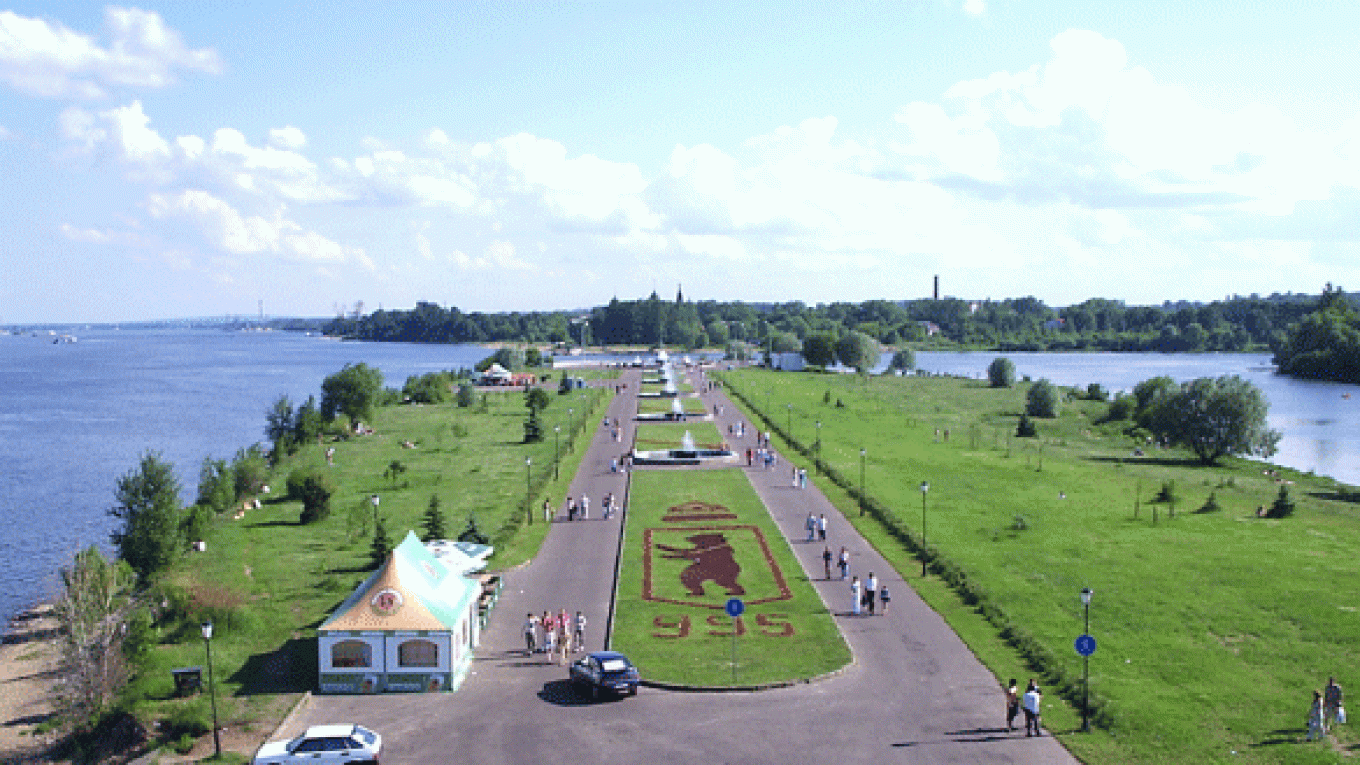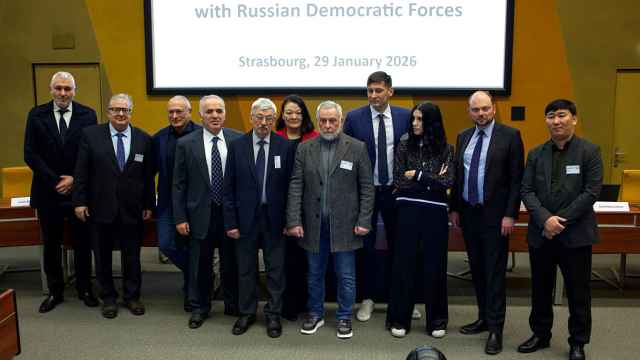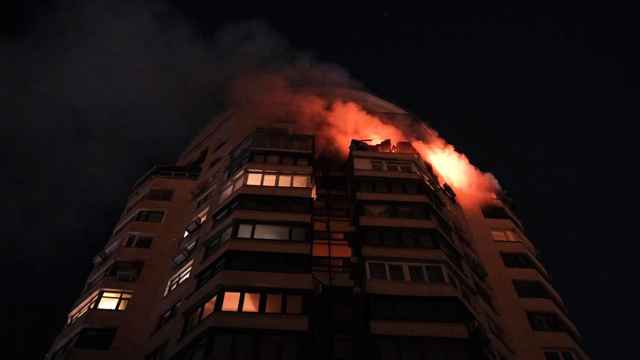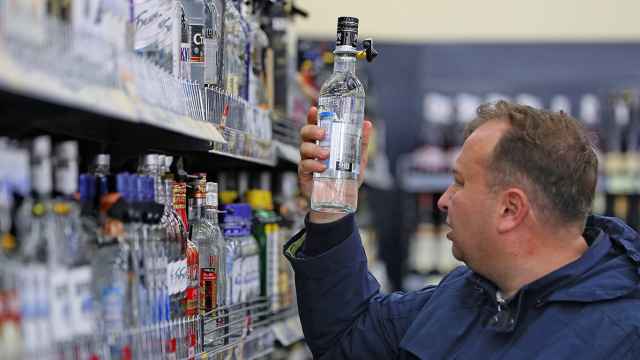YAROSLAVL — The director of Komatsu's high-tech machinery factory in Yaroslavl, Yasuhisa Tsukamoto, spoke directly.
During a tour of the industrial park where the Japanese firm Komatsu is based, Tsukamoto told a group of invited consultants who will eventually be employed to advise potential investors about how he had faced problems with the "mafia."
During the factory's construction and before the industrial park had officially been set up, there were difficulties with "mafia" elements that disrupted the establishment of gas and electricity supplies, Tsukamoto said, speaking through an interpreter.
Despite such problems, the Komatsu factory, visited by Prime Minister Vladimir Putin last year, is a poster child for Yaroslavl's Novosilki Industrial Park.
One of three such developments in the Yaroslavl region, which aims to pump 470 million rubles ($17 million) into the infrastructure of industrial parks this year, Novosilki is a 455-hectare site on the outskirts of Yaroslavl city. In addition to Komatsu, it is home to companies such as international construction giant Astron Lindab and Norwegian pharmaceutical outfit Nycomed.
Industrial parks have contributed significantly to the economic development of many countries, and their potential to stimulate growth in Russia's industrial and manufacturing sectors is receiving growing recognition. Financed by membership fees and private donations, an umbrella body for Russian projects, the Association of Industrial Parks, was set up last year.
"Industrial parks have a 'ready to go' infrastructure," said Maxim Ivanov, chairman and founder of the group.
They create more jobs, more taxes for the local budget and they develop not only themselves, but also the surrounding infrastructure, he said.
"Considering the Russian economy's very promising future, we have a target to attract at least $500 billion of direct investment in industrial projects over the next five to 10 years," he said.
Boris Titov, chairman of Delovaya Rossia, a national organization promoting industrial development, told The Moscow Times that industrial parks solve the main problems for the establishment of new industry in Russia: "access to land, breaking into existing monopoly networks and high taxes."
Industrial parks personify a "one window" approach for companies, simplifying bureaucratic hassles and making life much easier for investors, he said.
But there is a long way to go. The Association of Industrial Parks estimates that there are 25 industrial parks open for business and 60 to 70 parks under development.
Ten of the 25 functioning parks have received official certificates from the association — a voluntary process that signals conformity with a set of published standards.
Titov said there were actually more than 100 industrial parks in the country but that 80 to 90 percent of them cannot be counted because they do not work efficiently and cannot attract investors. Most were "established by the will of the government, without any economic reason," he said.
Industrial parks have been significant in the economic development of many other countries, particularly Ireland, Turkey and, to a lesser extent, Spain.
According to Republic of Ireland's Industrial Development Agency, the country of about 4.5 million people (3 percent of Russia's population) has 30 business and technology parks.
Irina Makiyeva, deputy chairman of Vneshekonombank, told an audience gathered by the Association of Industrial Parks two weeks ago that the United States has 380 industrial parks and France has 75.
Many of these have a sophisticated level of service provision for the employees who work there with public transport, private security and even kindergartens.
Industrial parks can play a particularly important role in stimulating regional economies.
Francisco Ania, director of the Spanish company Impulso, told an investment forum in Moscow on April 21 that, judging from the experience of his country, "the industrial park is the best means for developing the regions of the modern era."
The Kaluga region, which attracted $1.3 billion in foreign investment from 2006 to 2009 and is perhaps the country's best example of a successful provincial economy, has seven industrial parks hosting companies including General Electric, Mitsubishi and Volkswagen.
"The main idea behind [industrial parks] is the total absence of infrastructure risk," said Vladimir Popov, general director of the Kaluga government agency responsible for working with investors, the Kaluga Regional Development Corporation. "Big [foreign] companies think that industrial parks help them to effectively realize their projects in Russia."
The creation of industrial parks is also tied to innovation and development — themes championed by President Dmitry Medvedev. The Association of Industrial Parks has a quote from Medvedev on its web site: "Russia has no alternative to modernization."
Both Delovaya Rossia and the Association of Industrial Parks agree, however, that an important priority was to ensure that industrial parks be run by management companies privately, or jointly with local government, not solely by the state.
The Association of Industrial Parks said 50 percent of active industrial parks are privately owned and the other 50 percent are public-private partnerships.
The private input, they said, ensures that there is real incentive for the park's management to attract investment. It will "stimulate them to work," Titov said.
Though Yaroslavl's Novosilki Industrial Park is currently 77 percent owned by the local authorities, ownership will be fully transferred to a management company this year.
But Komatsu's Tsukamoto won't want to see state backing for the industrial park fade any time soon. "Only the government can stand up to the mafia," he said. "And exactly because of that, the support of the government is most important."
A Message from The Moscow Times:
Dear readers,
We are facing unprecedented challenges. Russia's Prosecutor General's Office has designated The Moscow Times as an "undesirable" organization, criminalizing our work and putting our staff at risk of prosecution. This follows our earlier unjust labeling as a "foreign agent."
These actions are direct attempts to silence independent journalism in Russia. The authorities claim our work "discredits the decisions of the Russian leadership." We see things differently: we strive to provide accurate, unbiased reporting on Russia.
We, the journalists of The Moscow Times, refuse to be silenced. But to continue our work, we need your help.
Your support, no matter how small, makes a world of difference. If you can, please support us monthly starting from just $2. It's quick to set up, and every contribution makes a significant impact.
By supporting The Moscow Times, you're defending open, independent journalism in the face of repression. Thank you for standing with us.
Remind me later.







